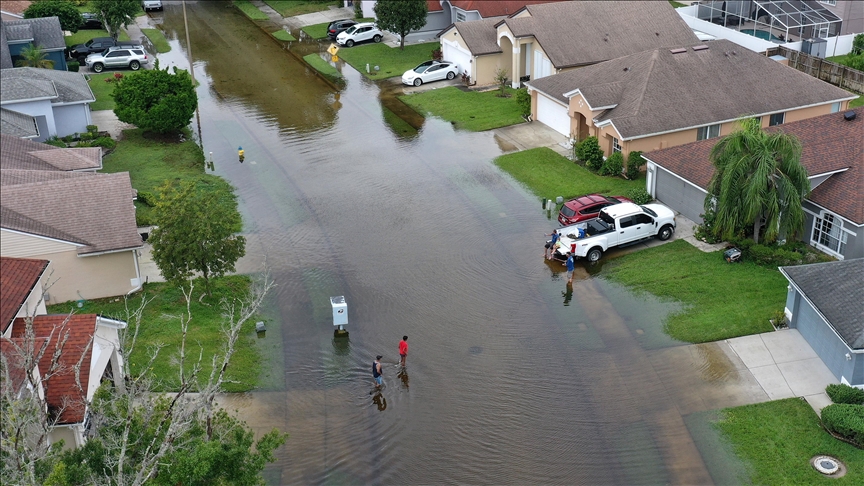 Hurricane Milton causes severe flooding in Florida
Hurricane Milton causes severe flooding in Florida
IZMIR, Türkiye
Hurricane Milton, which struck Florida last week, "could be a harbinger of possible future disasters," an expert on climate change from Türkiye's Bogazici University told Anadolu on Monday.
Professor Levent Kurnaz highlighted that Hurricane Milton’s unusual path made it distinct from typical storms in the Gulf of Mexico. "The hurricane moved eastward across the Gulf, following a rarely seen trajectory," Kurnaz said, adding that abnormally high sea temperatures played a key role in the storm’s strength.
"The most important reason behind Milton’s power was that sea water temperatures were above seasonal norms," Kurnaz explained. Water surface temperatures in the Gulf were about one degree Celsius higher than usual, which accelerated the hurricane’s energy accumulation.
Kurnaz pointed to human-induced global warming as a primary cause of elevated sea temperatures. "Milton gathered energy from these warm waters, turning into a gigantic hurricane," he said, underscoring that rising sea temperatures due to climate change are likely to increase the intensity and frequency of hurricanes in the future.
According to Kurnaz, Hurricane Milton not only demonstrated unusual strength but also illustrated how climate change could be shaping the behavior of hurricanes.
"Milton's quick and violent strengthening is directly related to global climate change," he noted, explaining that warmer ocean surfaces contribute to the rapid intensification of such storms.
Hurricane Milton, which made landfall as a Category 3 storm, brought unprecedented rainfall to the Tampa Bay area, with meteorologists marking the event as potentially a one-in-1,000-year occurrence.
Kurnaz emphasized that similar extreme weather events could become more common as the planet warms, with scientists predicting an increase in storms with rare paths and severe impacts.
*Writing by Serdar Dincel in Istanbul








